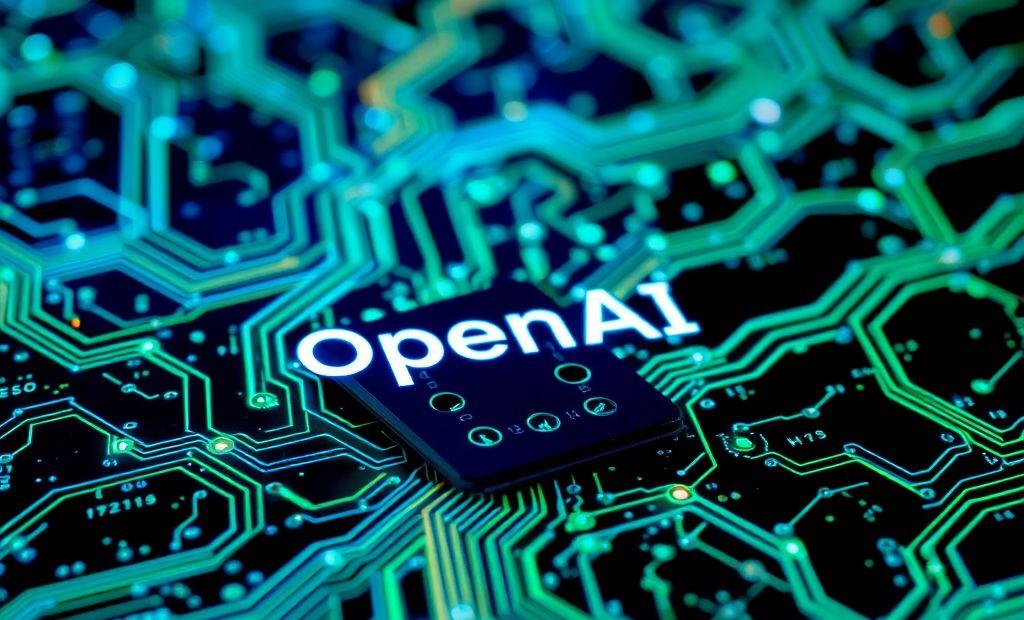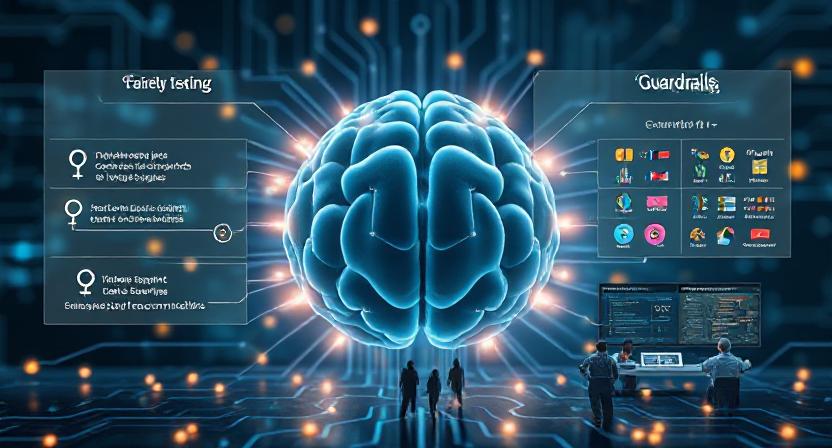OpenAI’s GPT-5: What’s New and Exciting?

The Arrival of OpenAI’s GPT-5 Notably the tech world is buzzing OpenAI appears on the verge of releasing its next-generation language model GPT-5.While official details...
⏱️ Estimated reading time: 3 min
Latest News
The Arrival of OpenAI’s GPT-5
Notably the tech world is buzzing OpenAI appears on the verge of releasing its next-generation language model GPT-5.
While official details remain scarce the anticipation has become almost palpable.
Let’s explore what we might expect from this powerful new AI.
What We Know So Far
As with previous GPT releases OpenAI is keeping its cards close to its chest. However industry insiders and leaks suggest significant improvements across several key areas. We anticipate enhanced reasoning capabilities improved context understanding and even more realistic text generation. Previous models like GPT-4 set a high bar GPT-5 aims to exceed it.
Potential Improvements and Features
- Enhanced Reasoning: Expect GPT-5 to tackle more complex tasks requiring logical deduction and problem-solving.
- Improved Contextual Understanding: The model could better grasp nuances and subtleties in conversations leading to more coherent and relevant responses.
- Multimodal Capabilities: Building on the advancements in GPT-4 GPT-5 might offer even more sophisticated integration with images audio and video.
- Code Generation: Improved coding capabilities would make it easier for developers to generate and debug code.
Impact on AI Applications
Notably the arrival of GPT-5 will likely send ripples across the AI ecosystem impacting everything from chatbots and virtual assistants to content creation tools and research platforms.
Furthermore GPT-5’s enhanced reasoning multimodal input and expansive context capabilities promise to unlock new possibilities across sectors like finance healthcare and education.
Ultimately the breadth of GPT-5’s influence could fundamentally reshape how AI integrates into workflows and everyday life.
Specific applications that could benefit include:
- Specifically: customer service benefits from more human-like and efficient chatbots which simulate natural conversation and speed up response times.
- Specifically: customer service benefits from more human-like and efficient chatbots which simulate natural conversation and speed up response times.
- Education: Personalized learning experiences and automated tutoring systems.
- Research: Accelerated data analysis and hypothesis generation.
The Ethical Considerations
As AI systems grow more powerful and pervasive developers corporations and regulators must recognize and respond to the new ethical stakes. Advanced language models like GPT now influence public discourse hiring and productivity and their impact must be carefully managed.

Key Ethical Concerns to Address
Language models often inherit and amplify societal biases. For instance GPT-based tools have shown tendencies to favor certain demographics in job recommendation tasks. Scholars also note that LLMs disproportionately associate stereotypical professions with specific genders or nationalities.
Mitigating bias involves techniques such as transparent data sourcing fairness testing and embedding guardrails in the model pipeline.
Misinformation and Misuse
LLMs can generate remarkably plausible yet false content posing risks of deepfakes false narratives and information pollution. Studies highlight this threat and call for improved detection prompt design and verification mechanisms.
OpenAI has joined forces with researchers from Georgetown and Stanford to proactively study and mitigate disinformation vectors.
Job Displacement Impact
OpenAI’s CEO Sam Altman has foreseen significant disruption pointing to entry-level and customer support roles as likely to vanish.
Meanwhile public surveys reveal deep anxiety over half of U.S. adults worry about AI-induced job loss and erosion of human connection.
Caution comes from OpenAI’s COO who replied that some predictions such as half of entry-level jobs disappearing are alarmist reflecting a need for balanced discourse.
OpenAI’s Ethical Initiatives & Oversight
Whistleblower concerns A group of current and former OpenAI and DeepMind employees publicly warned about AI risks urging more transparency regulatory engagement and internal accountability.Safety collaboration OpenAI emphasizes working with policymakers and researchers to strengthen governance around bias misinformatio and misuse.
Related Posts
Bluesky Enhances Moderation for Transparency, Better Tracking
Bluesky Updates Moderation Policies for Enhanced Transparency Bluesky, the decentralized social network aiming to compete...
December 11, 2025

Google Maps: Gemini Tips, EV Charger Predictions & More!
Google Maps Gets Smarter: Gemini Tips & EV Updates Google Maps is enhancing user experience...
December 9, 2025

US, UK, Australia Sanction Russian Web Host
Crackdown on Russian ‘Bulletproof’ Web Host The United States, United Kingdom, and Australia have jointly...
December 6, 2025
1 Comment
-
user466212
Nice post! 1754786073











Nice post! 1754786073